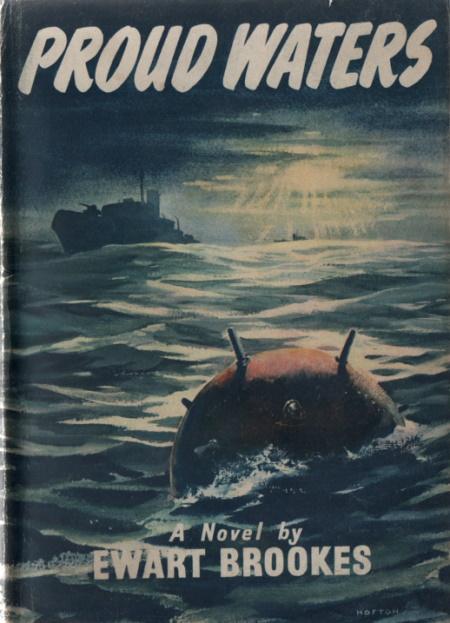Book review by George Simmers: Minesweepers were among the less glamorous naval vessels during the Second World War, but the work they did was vital. Ewart Brookes’s novel is closely based on his own experience commanding a minesweeper patrol ship.

His hero, Lieutenant William Haley, RNVR, is at first disappointed to be transferred from a position as First Officer on the Culver, a destroyer, to command of a minesweeper. He pictures it as ‘a grubby little trawler’ – since most minesweepers were converted fishing vessels. Yet the appalling news that the Culver had been destroyed by a mine soon after he left convinces him of the crucial importance of the minesweepers’ work.
The story is set in one of the most crucial periods in British history, just after Dunkirk, while the Battle of Britain was being fought viciously in the air, and invasion was still a real possibility. Haley is on the Arandite, part of a The squadron’s’s job was to keep crucial areas off the south coast clear, to allow other naval vessels to move freely. German aircraft in occupied France were uncomfortably close, and determined to harry the sweepers in their work.
Brookes was a journalist, and is good at getting across the facts of the minesweeper’s existence. But he does more than this; he is good at interpersonal relationships on the ship. When Haley arrives on the Arandite, it is an unhappy ship. The previous captain was an increasingly unstable man who did not trust his crew; Haley has to prove himself, and the depiction of the loneliness and responsibility of command is well done. The chapters describing the conversion of the Arandite into a happy ship, partly through the ordeal of battle, are very well done, as is the developing relationship of trust between Haley and his First Officer.
I have to declare a special interest in this novel. My father commanded minesweepers during the war, in Malta, in the Atlantic and in the Mediterranean. I’ve not read a book before that gets across so well the danger, the toil and the drudgery of minesweeping. Ewart Brookes has his limits as a novelist (I felt he overdid the melodrama and pathos in some of the later chapters) but he is an excellent reporter, with a good ear. I was completely convinced by his depiction of the culture of the wardroom, with the banter and the slang, and the pink gins and copies of Men Only. And in some of the conversations between officers in the mess at the Base, I could hear my father’s voice, blokeish, understated, practical.
